
As special educators, we already have so much paperwork (SO much) needing to be graded, sorted, and filed. You may even wonder – do I really NEED to save even more student work? How useful is it anyway? In this blogpost, I'm sharing how helpful work samples have been and creative ways to collect them without adding to your teacher workload.
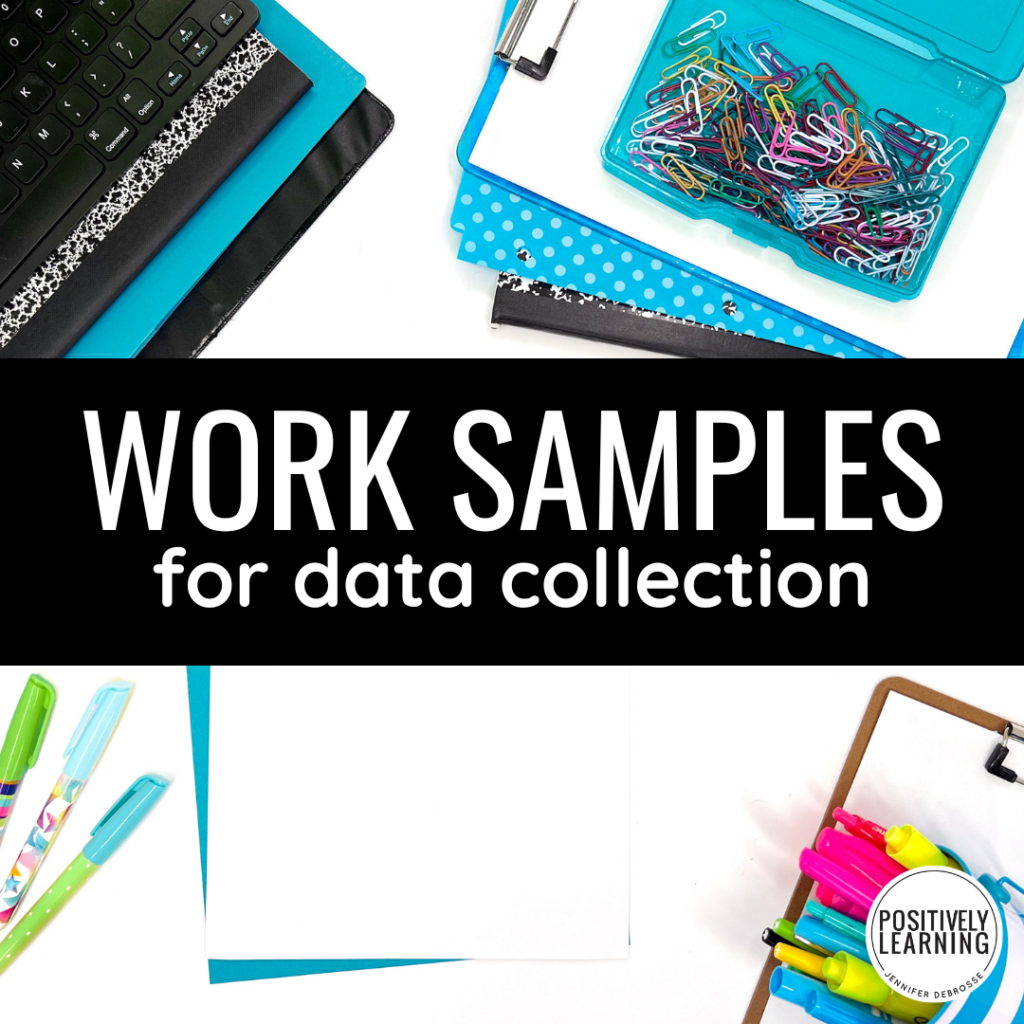
Table of Contents
ToggleWork samples play an active role in the assessment process, especially during the Individualized Education Program (IEP) meetings. They serve as evidence of student learning and provide much information about a student's unique needs.
For example, a series of math worksheets could demonstrate how a student with special needs has progressed over the prior year. Such data is invaluable to the IEP team members, which might include school administrators, the classroom teacher, school nurse, and parents, in making good decisions about the student's program evaluation and setting goals for the upcoming time period.
One helpful perspective when deciding if collecting work samples is really worth it is that student work samples are tangible proof of what a student can actually DO (application) versus what they know (receptive learning).
While test scores from state assessments and other summative assessments provide a snapshot of a student's performance on goals and objectives, work samples collected on an ongoing basis offer a more authentic assessment of student progress.
There are various ways special education teachers can collect work samples. Informal assessments, such as teacher observations, student surveys, and exit tickets, provide different ways of understanding individual students' performance. Formative assessments, like early childhood art projects, middle-grade social studies research methods, or high school level written assignments, provide useful information about student learning at different grade levels.
Collecting student work samples isn’t restricted to only academic subjects. Work samples from special services, such as speech therapy or occupational therapy, also contribute to a comprehensive view of student achievement.
Keeping student work samples organized is crucial for easy access and effective data analysis. There are several different approaches, but don't overthink it – choose one system to try out now. You can always go back and tweak it when you have more time!
Student file folders are a great way to collect and store work samples for each student throughout the entire year. They can include everything from test results, lesson plans, evaluation reports, to summary reports and more. They can even include student reflections on their own progress, serving as an authentic assessment tool.
This organizational system can be with physical tools, like file folders or binders, or digital folders such as Google Drive.
IMPORTANT – You do NOT need to only select items that a student performed well on or shows the most growth. Instead, be sure to select a variety of work samples that represent a true picture of how the student is doing independently. If any prompts are being provided – that's okay, just simply document it with a simple “with help” or identifying the specific prompt given.
If student folders seem like a great idea, but you still can't fathom finding the time to file – I hear you! Picture this: 400+ printable worksheets neatly organized by early math and early literacy skills, all tucked inside each student's binder. Imagine simply grabbing the binder and walking into your next meeting with all the student work samples in ONE place.
What makes these task binders a real star, apart from the ease of organization, is their versatility. Got early birds in the morning or early finishers looking for more to do? Hand them their binder. Need some performance assessment data or quick data collection for IEP goals and objectives? It's all there in the binder!
These worksheets aren't just busywork, either. They're targeted practice pages, each one designed to aid progress monitoring and provide valuable work samples. And the best part? These binders can be used anytime students are working independently, turning spare moments into valuable learning opportunities. There's even a discrete space on each page for quick data collection and recording!
Keep collecting, keep analyzing, and continue playing your crucial role in shaping the future of our young children with special needs. Because every informed decision we make today will help shape a brighter tomorrow for our students!

I’m Jennifer and I was a special educator in the elementary school setting over the past decade. I entered the classroom every day dedicated to making learning inclusive AND engaging.
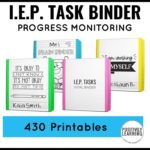
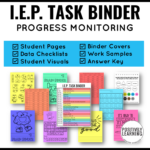
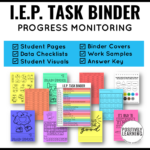
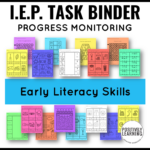
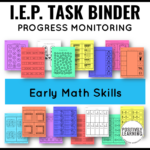
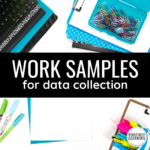
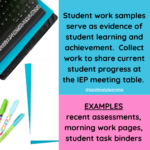

This website uses cookies to ensure you get the best experience on our website. See full disclosure here.
This website uses cookies to ensure you get the best experience on our website.
See full disclosure here.